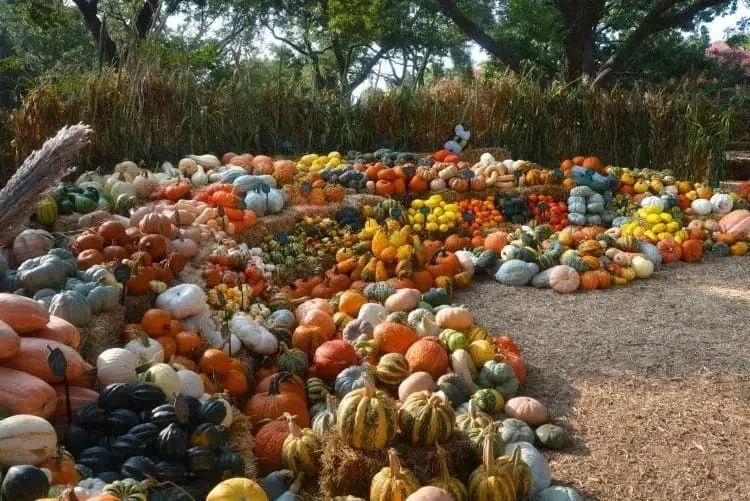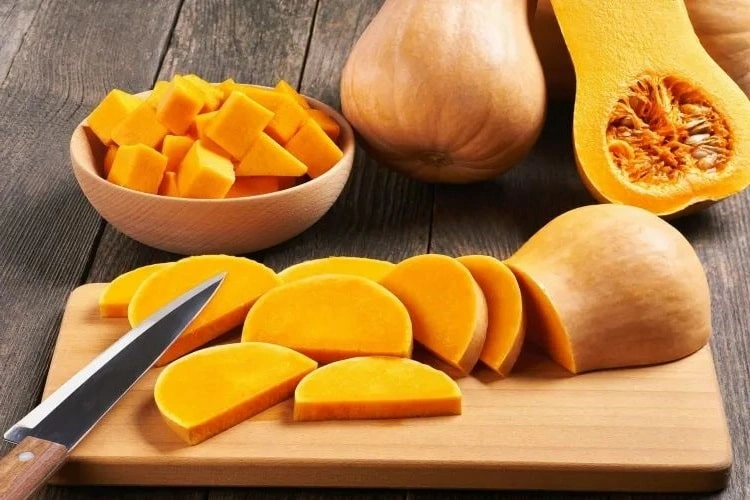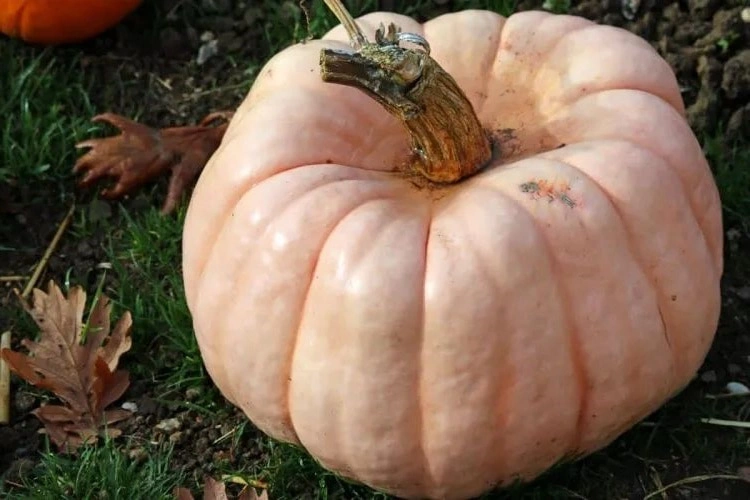Excluding pumpkins from the autumn menu? It’s unthinkable! How did it occur to you? You’ve heard or read somewhere that there are unhealthy squashes. Don’t worry! Poisonous squash is possible, but how do you know which squash is safe to eat? Find out in this article!
Is There Such a Thing As Unhealthy Squash? What’s Toxic Squash?
This has been on my mind for some time. I planted my pumpkins rather late, according to what my neighbours have told me about this crop. However, in June in the vegetable garden, you can start planting pumpkins as well as root vegetables. That’s what I’ve been doing, and for the last few days, I’ve been noticing little fruits forming here and there. I have my doubts about the reliability of the seeds because I stored them in jars a few years ago. They’re in good condition, quite dry, but I decided to check out just to be sure.
What makes squash poisonous? Firstly, not all ornamental squashes are edible, but they ‘stay’ perfectly well in an autumn composition. Secondly, there are wild squashes that have grown from a seed carried by a bird. This is the case with gourds, which contain cucurbitacins in their flesh. These substances are toxic, irritate the digestive system, and make up the group of squashes that are bad for your health. Even after cooking, a toxic squash does not lose its bitter taste.
When Not to Eat Squash?
Apart from squashes that are used in flower arrangements and wild squashes that get out of hand, are there any risks involved in eating cucurbits? In autumn, pumpkins display their imperturbability by spreading out in the garden, and we’re proud of them for that. But you should always bear in mind that unhealthy squash are not uncommon. How do you know if a squash is edible? Last year, you mastered pumpkin carving for Halloween. So there’s no problem cutting off a raw piece and tasting it. If you smell a bitter taste, feel free to throw it away or scoop it out while you wait for the next party, or make a lantern for those still-warm evenings outside.
The key to healthy squash is correct storage. When harvesting, inspect the surface and stem. However, the stem must remain intact, as rotting can start at the top.
The slightest sign of mould can develop and turn a pumpkin into a stinking pate. The pumpkin will decompose and become unfit to eat. What’s more, it will spoil completely in less than 2 days. To prevent this, if the rest of the pumpkin is still firm, remove the mouldy part and cook it as quickly as possible.
What Leads to Unhealthy Squash and Makes It Inedible?
If you don’t keep your pumpkins safe from insects, they can devour the fruit from the inside. Houseflies and certain beetles, such as mealworms, lay their eggs inside the pumpkin (through holes), and their offspring (disease-carrying maggots) will consume the flesh.
A bad or unpleasant smell indicates a toxic pumpkin and the presence of harmful microbes such as certain species of bacteria and fungi.
There’s no doubt that a soft pumpkin is unfit to eat. You shouldn’t even cut up the part that has remained firm, as you can’t be sure that it isn’t contaminated.
Be careful if you notice a pumpkin dipping into a liquid. This is another bad sign that the fruit is rotten.
Depending on the variety, a fresh pumpkin has a bright matt orange or green colour. Any change to brown and black suggests that it is undergoing a harmful transformation.
Gently tap the pumpkin, it should sound hollow if it’s fresh and still healthy.
If the pumpkin looks light, expect insects to feast on the flesh inside.
If the stem is firm, the pumpkin may be stored. When it’s loose and stays in your hand, approach it with care.
In general, pumpkins start to decompose from the base that is in contact with the soil. Check to see if the bottom is hard.
Read also: What To Do With The Pumpkins After Halloween? – Here’s How to Make Use of the Leftovers!
What Can You Do with Bad Pumpkins?
Bad for you, but good for the compost, you can still make the most out of your pumpkins. In winter, bury the rotten fruit in the ground, as this will provide nutrients for your spring crops.
Also read: What Waste Products to Use as Fertilizers? These 7 Are Worth Their Weight in Gold in the Garden
Can farm animals eat bad pumpkins? Absolutely not! Decomposing products can make your cows sick and their stomachs swell. They can also impair milk quality.



